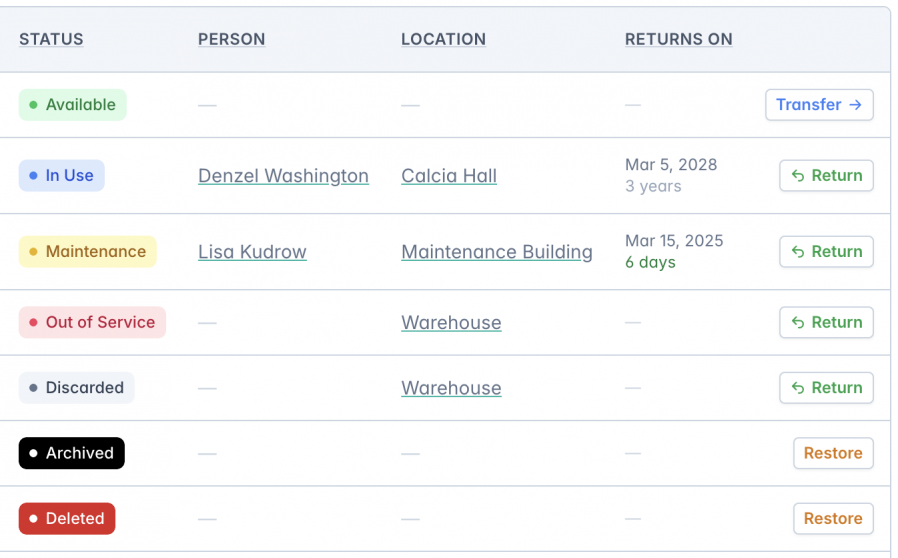Assets
Asset Statuses
Statuses in AMSDeck, the asset management software, are used to provide a clear overview of an asset’s condition, usage, and availability.
Having well-defined statuses is essential for efficient asset management, as they help users streamline workflows, optimize resource allocation, and ensure proper maintenance and tracking throughout the asset’s lifecycle.
Status Details
The following statuses are available in AMSDeck:
- Available
- In Use
- Maintenance
- Out of Service
- Discarded

Available
The asset is in good condition and ready for transfer.
In Use
The asset is currently in someone's possession.
Maintenance
The asset is undergoing servicing or repairs.
Out of Service
The asset is non-functional and temporarily unusable.
Discarded
The asset has reached the end of its lifecycle and is no longer in use.
Final Asset States
There are also two additional states: Archived and Deleted. While not standard statuses, they represent the asset’s final condition within the system.
- Archived – The asset is no longer active in daily operations but remains in the system for historical reference, reporting, or compliance purposes. It is not available for use but can still be accessed if needed.
- Deleted – When an asset is deleted, it is first moved to the Trash, where it remains for 7 days as a safeguard against accidental deletion or misuse. During this grace period, the asset and its related data can still be restored if needed. However, once the 7-day period expires, the asset is permanently removed from the system, erasing all related data and making it unrecoverable.
Side note: Even though these states appear final in the asset's lifecycle, you can still restore the asset from these states to an active status.
These statuses and states are important for data management and record-keeping, ensuring assets can be retained for reference or completely removed when no longer needed.
Next: Learn about all the options in Asset Details

